- Advertising
- Bare Metal
- Bare Metal Cloud
- Benchmarks
- Big Data Benchmarks
- Big Data Experts Interviews
- Big Data Technologies
- Big Data Use Cases
- Big Data Week
- Cloud
- Data Lake as a Service
- Databases
- Dedicated Servers
- Disaster Recovery
- Features
- Fun
- GoTech World
- Hadoop
- Healthcare
- Industry Standards
- Insurance
- Linux
- News
- NoSQL
- Online Retail
- People of Bigstep
- Performance for Big Data Apps
- Press
- Press Corner
- Security
- Tech Trends
- Tutorial
- What is Big Data
Bigstep Recommends: Best Books to Read during the Winter Holidays
Reading not only stimulates the brain and reduces stress, but also provides important knowledge to help you in your business and tech endeavors. The winter holidays are a good time to catch up on your reading so check out these book recommendations from Bigstep’s CxOs.

Lucas Roh, CEO, recommends Fog and Edge Computing, by Satish Narayana Srirama and Rajkumar Buyya
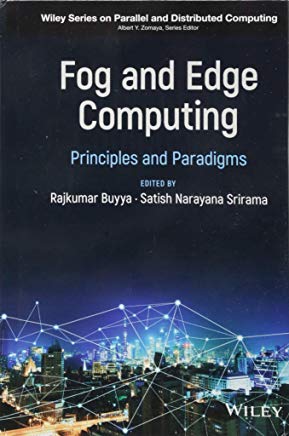
Can traditional cloud architectures handle the demands of Internet of Things? In this book, leading IoT experts discuss the changes that Fog and Edge Computing will bring in data management and predictive analysis, as well as in big data analytics, health monitoring, smart transportation, and IoT.
If you want to better understand how the transition from the cloud and 4G/5G wireless environments to Fog Computing will take place, and what the potential challenges and opportunities are, you should add this book to your wish list.
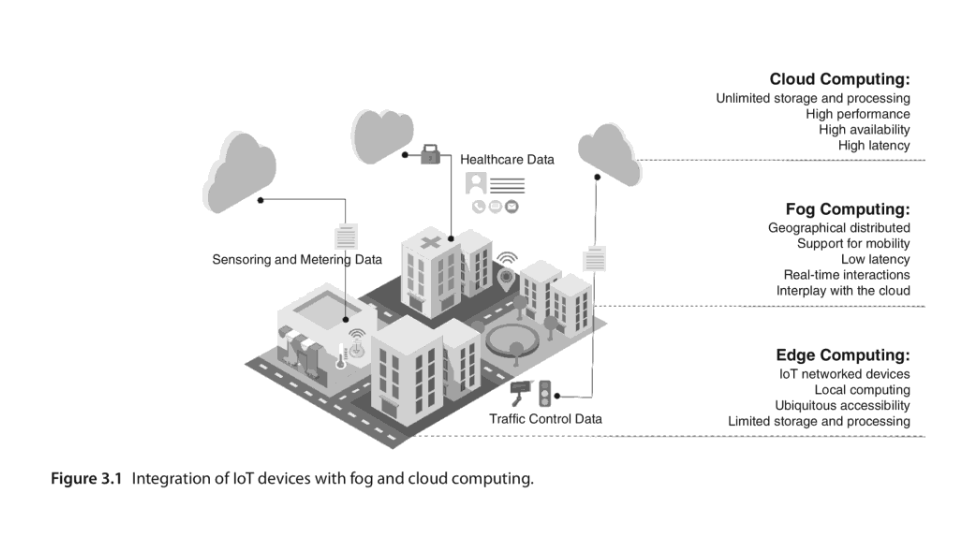
Quotes
"Large-scale distributed control systems, geo-distributed applications, time-dependent mobile applications, and applications that require very low and predictable latency or interoperability between service providers are just some of the IoT application categories that existing cloud infrastructures are not well-equipped to manage at a hyperscale."
"The formalization of 5G is still in its early stages and is expected to be mature by 2020. However, the main intentions of 5G include enabling Gbps data rate in a real network with least round-trip latency and offering long-term communication among the large number of connected devices through high-fault tolerant networking architecture."
John Martis, President, recommends The Industries of the Future, by Alec Ross
![]()
In this book, Alec Ross wants to show people what technological and social changes are going to happen in the next 10 years. He travelled to 41 countries and researched the latest technological advances on each continent, from start-up hubs in Kenya to R&D labs in South Korea; he has seen what the present is like and what the future holds.
By weaving the diverse emerging technologies and biotech research into one big picture, Alec Ross presents a comprehensive view of the future in robotics, cybersecurity, the commercialization of genomics, the next step for big data, and the impact of digital technology on money and markets.
Read this book if these questions intrigue you: How will we adapt to the changing nature of work? Is the prospect of cyberwar sparking the next arms race? How can the world’s rising nations match Silicon Valley in creating their own innovation hotspots? And what can today’s parents do to prepare their children for tomorrow?
Quotes
"The last trillion-dollar industry was built on a code of 1s and 0s. The next will be built on our own genetic code."
"Is there an algorithm for trust? New ways to exchange are forcing a rewrite of the compact between corporation, citizen, and government."
& Hit Refresh: The Quest to Rediscover Microsoft's Soul and Imagine a Better Future for Everyone, by Greg Shaw, Jill Tracie Nichols, and Satya Nadella
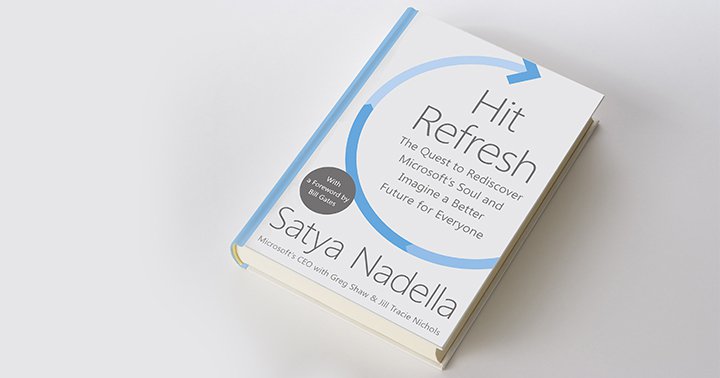
Hit Refresh presents a litany of reflections and meditations of Satya Nadella in the quest for Microsoft’s continuous transformation, while also touching upon his own journey from his childhood in India to working towards creating some of the most disruptive technologies, from artificial intelligence, to mixed reality, and to quantum computing.
Nadella focuses not only on technology, but also on humanity and empathy, by exploring the ways in which technology will ultimately impact society – people and organizations must transform and adapt by sometimes recalibrating and hitting refresh in their ideas and goals.
Quotes
"Our industry does not respect tradition. What it respects is innovation."
"Sure, in this age of continuous updates and always-on technologies, hitting refresh may sound quaint, but still when it’s done right, when people and cultures re-create and refresh, a renaissance can be the result."
Alex Bordei, VP of Product & Engineering, recommends Priceless: The Myth of Fair Value (and How to Take Advantage of It), by William Poundstone
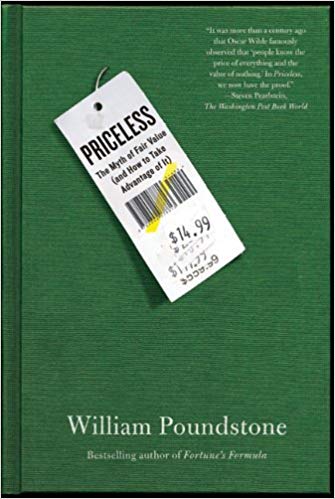
What influences people in their view of fair pricing? According to William Poundstone, people are influenced by the unconscious, irrational, and politically incorrect. By analyzing a series of real-world experiences of major companies – such as Prada, or Apple – and of smaller companies getting ahead due to diverse pricing formats or techniques, Poundstone reveals the hidden psychology of value.
Read Priceless if you want to find out the answers to: Why do text messages cost money, while e-mails are free? Why do jars of peanut butter keep getting smaller in order to keep the price the "same"?
Quotes
"This book tells the story of a simple finding with far-reaching consequences. The numbers that make our world go around are not so solid, immutable, and logically grounded as they appear. In the new psychology of price, values are slippery and contingent, as fluid as the reflections in a fun-house mirror."
"One of the things that price consultants have learned is that what consumers say and what they do are not the same thing."
Marius Boeru, Systems Manager, recommends Site Reliability Engineering, by Benjamin Treynor Sloss
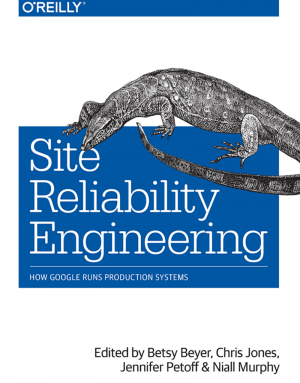
Have you ever wondered how Google pulls off managing some of the largest and most diverse software systems in the world? And how is it handling internal collaboration between tech departments? The secret keyword is: SRE - or Site Reliability Engineering.
In this book, members of the SRE team explain what Site Reliability Engineering is and how it differs from other more traditional IT industry practices. In the simplest of definitions, “SRE is what happens when you ask a software engineer to design an operations team.” The diverse backgrounds and work experience of people in the SRE team often result in high-quality systems, as we can all notice in Google’s products.
Quotes
“Traditional operations teams and their counterparts in product development thus often end up in conflict, most visibly over how quickly software can be released to production. At their core, the development teams want to launch new features and see them adopted by users. At their core, the ops teams want to make sure the service doesn’t break while they are holding the pager. Because most outages are caused by some kind of change—a new configuration, a new feature launch, or a new type of user traffic—the two teams’ goals are fundamentally in tension.”
“Conflict isn’t an inevitable part of offering a software service. Google has chosen to run our systems with a different approach: Site Reliability Engineering.”
Mihail Musat, Director of Operations, recommends From Good to Great: Why Some Companies Make the Leap... And Others Don't, by Jim Collins
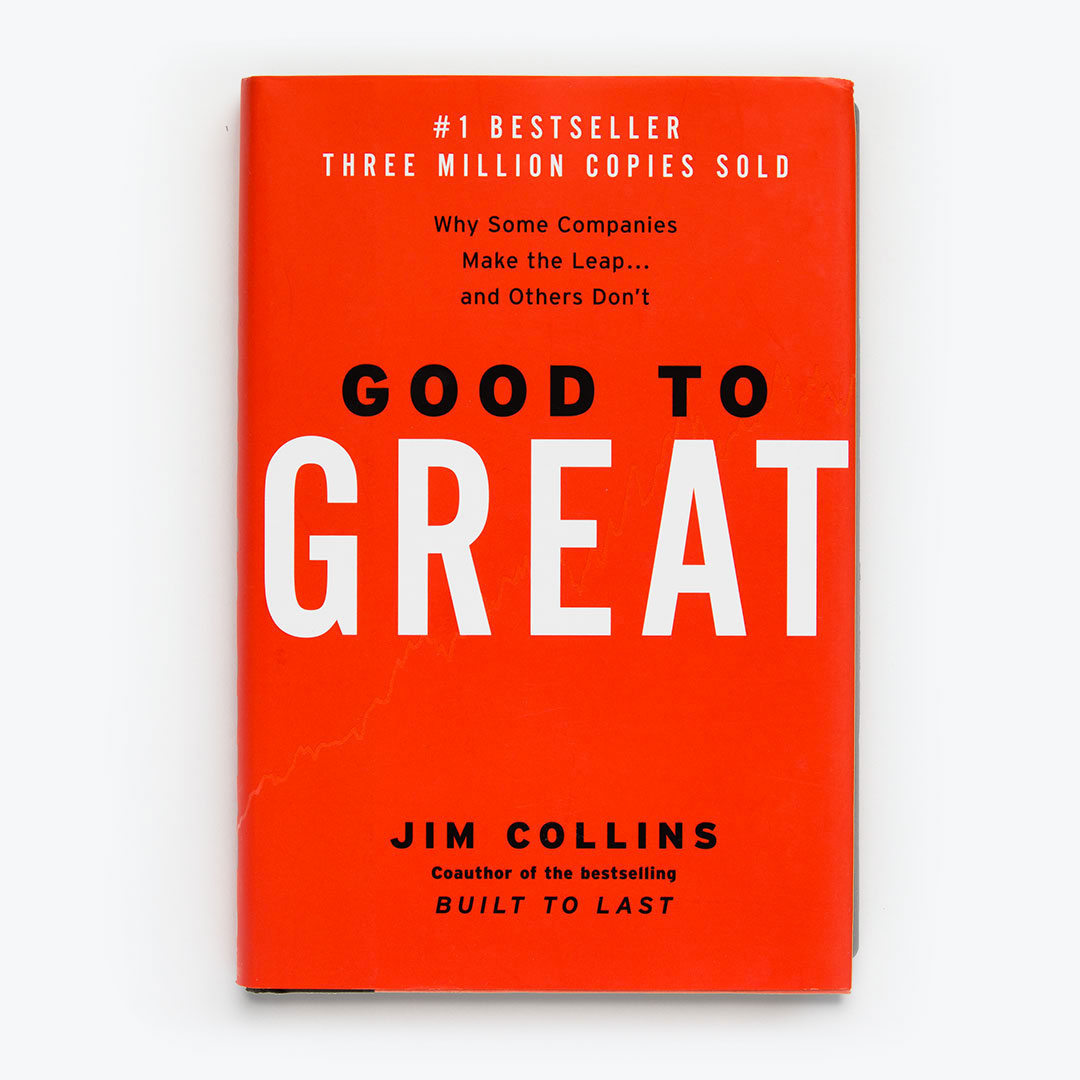
From Good to Great starts off from real-world data, more specifically from analyzing 30 years of Top Fortune 500 companies, out of which 11 ended up being considered the good-to-great companies. Jim Collins does the work of finding out what they all have in common – analyzing data, identifying trends, and then turning them into a great book of best practices in company leadership.
The question this book is ultimately trying to answer is: Can a good company become a great company and, if so, how?
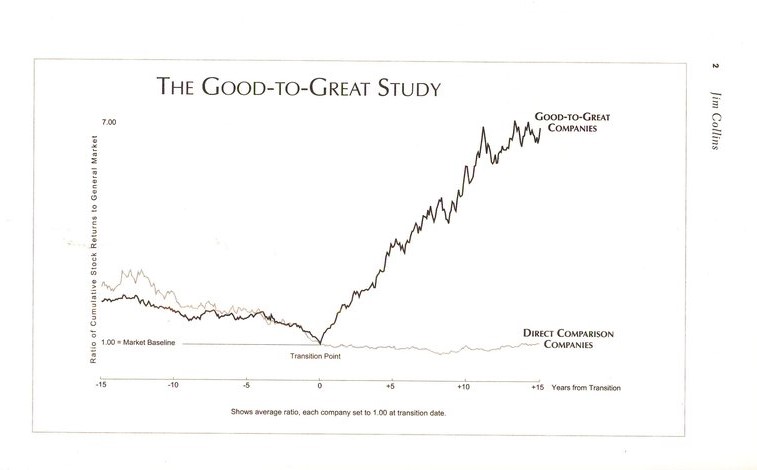
Quotes
“All companies have a culture, some companies have discipline, but few companies have a culture of discipline. When you have disciplined people, you don't need hierarchy. When you have disciplined thought, you don't need bureaucracy. When you have disciplined action, you don't need excessive controls. When you combine a culture of discipline with an ethic of entrepreneurship, you get the magical alchemy of great performance.”
“Good-to-great companies think different about the role of technology. They never use technology as the primary means of igniting a transformation. Yet, paradoxically, they are pioneers in the application of carefully selected technologies. We learned that technology by itself is never a primary root cause of either greatness of decline.”
& Built to Last: Successful Habits of Visionary Companies, by Jim Collins
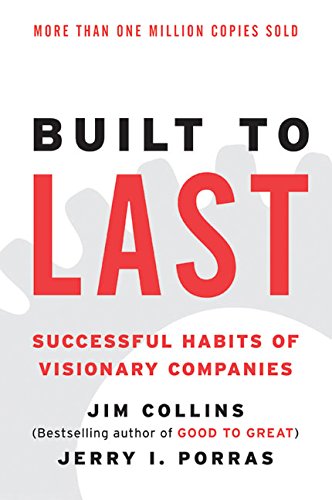
Being named one of the most influential business books of our era (by fastcompany), Built to Last, the sequel to From Good to Great, is a presentation of a six-year research project at Standard University Graduate School of Business that examined what makes a great company. How? Through the analysis of 18 long-lasting companies – with an average of almost a hundred years of history.
These companies were closely examined in all stages of business – from start-up, to midsize, and to corporation – while also being compared to their direct competitors, in order to answer the much-debated question: What makes the truly exceptional companies different from other companies?
Quotes
“When a Boeing engineer talks about launching an exciting and revolutionary 777 aircraft she doesn’t say, “I put my heart and soul into this project because it would add 37 cents to our earnings per share.””
“If you woke up tomorrow morning with enough money in the bank that you would never need to work again, how could we frame the purpose of this organization such that you would want to continue working anyway? What deeper sense of purpose would motivate you to continue to dedicate your precious creative energies to this company’s efforts?”
Sabina Varga, Marketing Director, recommends Deep Work: Rules for Focused Success in a Distracted World, by Cal Newport
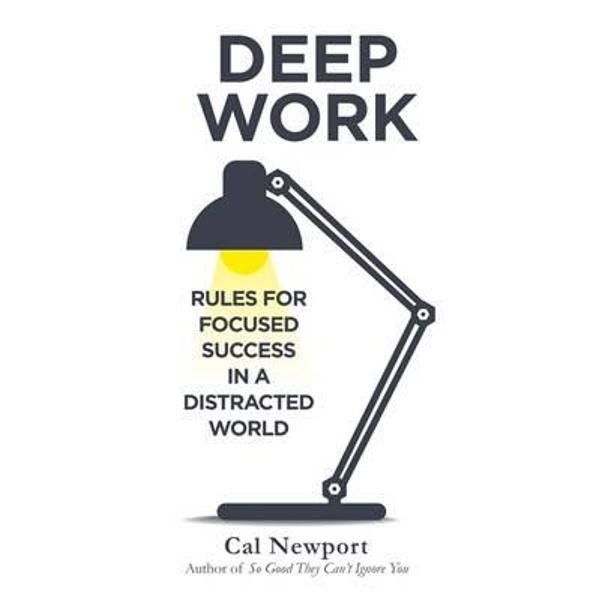
In the twenty-first century, people have been drowning in distractions, such as social media, gaming apps, chats, email and everything mobile. How long can you sit down and fully concentrate on a single task? Probably, not longer than a few minutes. In his book, Deep Work, Cal Newport, professor of computer science and author of several self-improvement books, explains why this constant shift in attention is detrimental and explores how to cultivate a deep work ethic by being able to actively focus on a cognitive task.
Instead of blaming distraction, Newport focuses on actionable advice to become better at what you do and promotes the idea that deep work has great benefits in any endeavor. He gives various examples, from different lines of work, to show how focusing on a single task for long periods of time is beneficial not only in terms of results, but also for your mental health.
Think it’s impossible to set aside time to focus with your schedule? The author gives practical tips to help you in your journey to better this skill.
Quotes
“To simply wait and be bored has become a novel experience in modern life, but from the perspective of concentration training, it’s incredibly valuable.”
“If you keep interrupting your evening to check and respond to e-mail, or put aside a few hours after dinner to catch up on an approaching deadline, you’re robbing your directed attention centers of the uninterrupted rest they need for restoration. Even if these work dashes consume only a small amount of time, they prevent you from reaching the levels of deeper relaxation in which attention restoration can occur. Only the confidence that you’re done with work until the next day can convince your brain to downshift to the level where it can begin to recharge for the next day to follow. Put another way, trying to squeeze a little more work out of your evenings might reduce your effectiveness the next day enough that you end up getting less done than if you had instead respected a shutdown.”
On this note, we hope you’ll be able to put aside your phone or laptop and enjoy some of the recommended books. Happy reading & enjoy the winter holidays!
Readers also enjoyed:
1.jpg)
Best Big Data Books to Read in 2018


Leave a Reply
Your email address will not be published.